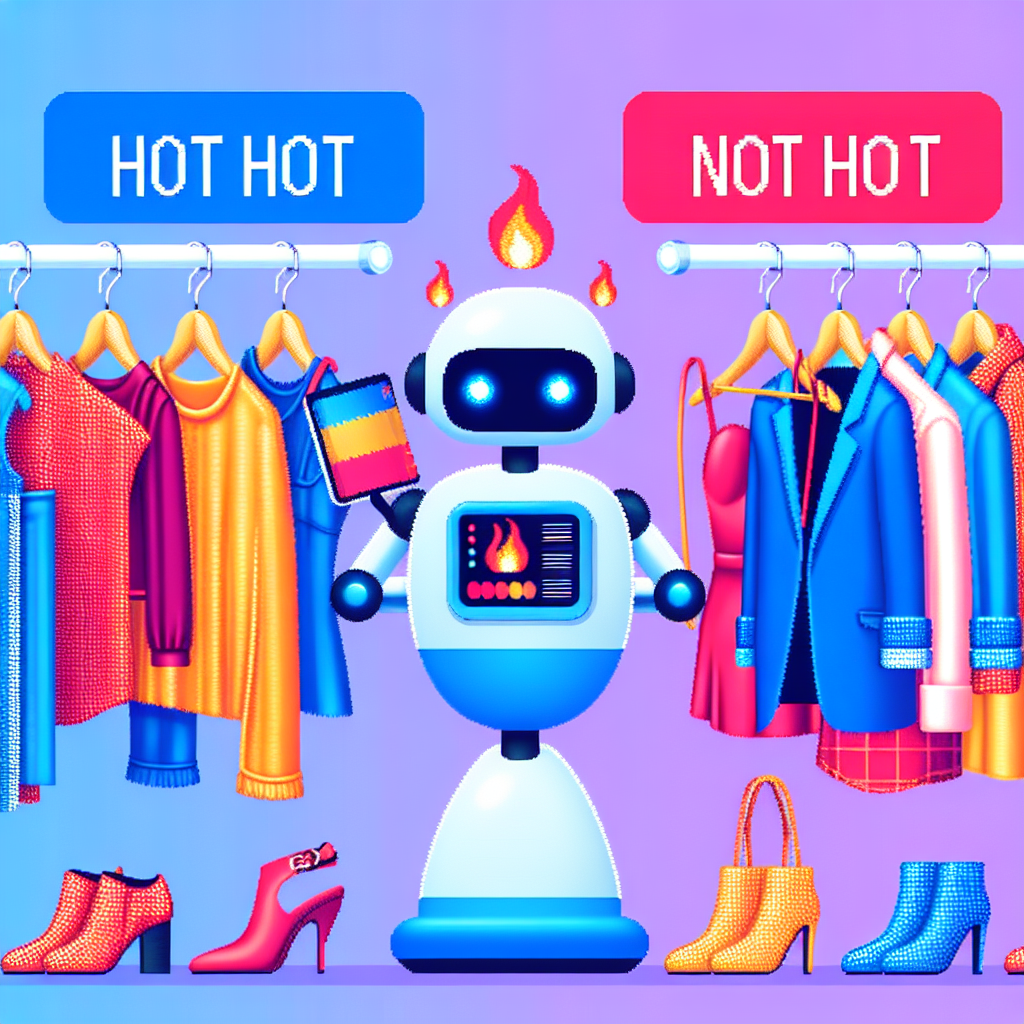AI-Powered Fashion Trends: What’s Hot and What’s Not
In recent years, artificial intelligence (AI) has made its way into the fashion industry, revolutionizing the way we shop, design, and consume clothing. From personalized styling recommendations to virtual fitting rooms, AI-powered fashion technologies are changing the way we interact with the world of fashion. In this article, we will explore some of the hottest AI-powered fashion trends and discuss what’s hot and what’s not in the world of AI fashion.
What’s Hot:
1. Personalized Styling Recommendations:
One of the most popular AI-powered fashion trends is personalized styling recommendations. AI algorithms analyze your shopping habits, preferences, and body measurements to suggest clothing items that are tailored to your unique style. Companies like Stitch Fix and Amazon’s StyleSnap use AI to curate personalized outfits for customers, making the shopping experience more convenient and enjoyable.
2. Virtual Fitting Rooms:
Virtual fitting rooms are another hot trend in AI fashion. These virtual platforms use AI technology to create a 3D model of your body, allowing you to try on clothing virtually before making a purchase. This eliminates the need for physical fitting rooms and helps customers make more informed decisions when shopping online.
3. Trend Forecasting:
AI is also being used to predict fashion trends before they hit the mainstream. By analyzing social media data, runway shows, and historical sales data, AI algorithms can identify emerging trends and help fashion brands stay ahead of the curve. This trend forecasting technology is invaluable for designers, retailers, and fashion influencers looking to capitalize on the latest fashion trends.
4. Sustainable Fashion:
AI is being used to promote sustainability in the fashion industry. By analyzing supply chain data, AI algorithms can help brands reduce waste, optimize production processes, and create more eco-friendly products. Companies like The Fabricant are using AI to design virtual clothing, reducing the need for physical garments and promoting a more sustainable approach to fashion.
What’s Not:
1. Lack of Diversity:
One of the main criticisms of AI-powered fashion technologies is the lack of diversity in the algorithms. Many AI systems are trained on biased data sets, leading to skewed recommendations and limited options for customers from diverse backgrounds. To address this issue, companies need to ensure that their AI algorithms are inclusive and representative of all customers.
2. Privacy Concerns:
AI-powered fashion technologies raise concerns about privacy and data security. Many customers are wary of sharing personal information with AI systems, fearing that their data may be misused or compromised. Companies must prioritize data protection and transparency to build trust with customers and ensure the ethical use of AI in the fashion industry.
3. Over-reliance on AI:
While AI can enhance the shopping experience, there is a risk of over-reliance on technology in the fashion industry. Human creativity, intuition, and emotion play a crucial role in fashion design and styling, and AI should be used as a tool to support and augment human decision-making, rather than replace it entirely. Balancing AI technology with human expertise is essential for creating a successful and innovative fashion brand.
Frequently Asked Questions:
1. How does AI technology influence fashion design?
AI technology influences fashion design by providing designers with valuable insights and tools to create innovative and personalized clothing collections. AI algorithms can analyze trends, predict consumer preferences, and optimize production processes, helping designers streamline their creative process and stay ahead of the competition.
2. How can AI improve the shopping experience for customers?
AI can improve the shopping experience for customers by offering personalized recommendations, virtual fitting rooms, and trend forecasting services. By leveraging AI technology, customers can enjoy a more tailored and convenient shopping experience, with access to a wider range of products and styling options.
3. What are the ethical considerations of AI in the fashion industry?
Ethical considerations of AI in the fashion industry include privacy concerns, bias in algorithms, and sustainability issues. Companies must prioritize data protection, diversity, and environmental sustainability when using AI in fashion, to ensure that their technologies are ethical, transparent, and inclusive.
In conclusion, AI-powered fashion trends are shaping the future of the industry, offering new opportunities for designers, retailers, and consumers to engage with fashion in innovative ways. By embracing AI technology responsibly and ethically, the fashion industry can create a more sustainable, inclusive, and personalized shopping experience for customers around the world.

